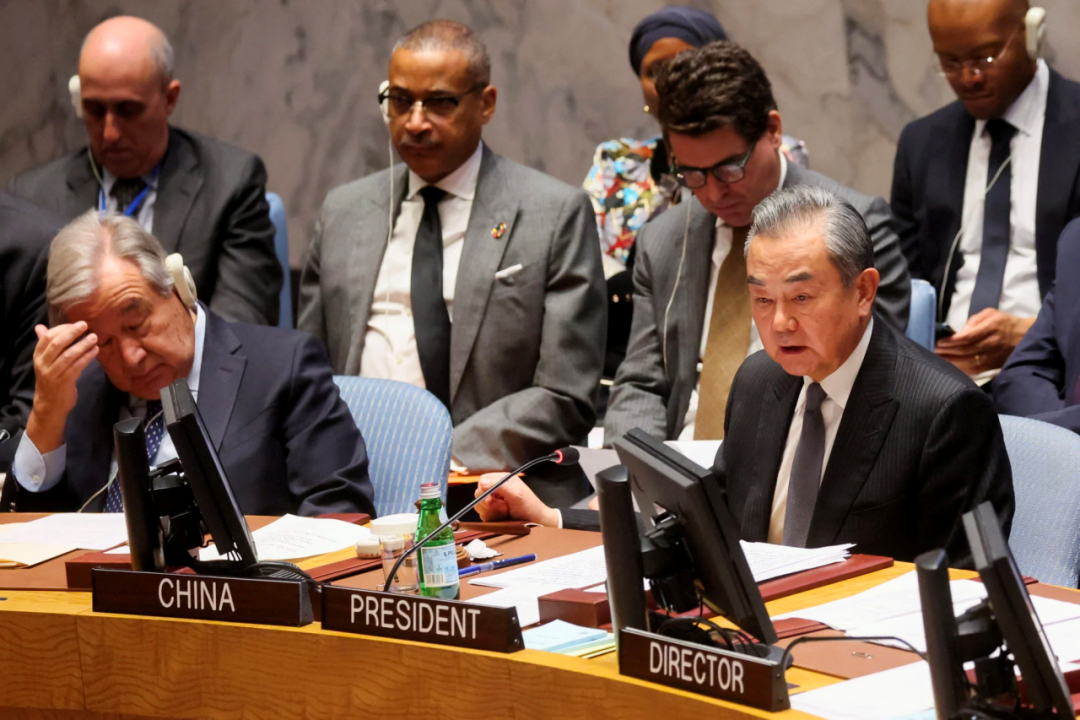世界正在经历许多全球问题上的南北分歧,包括乌克兰战争和以色列-加沙战争。面对充满敌意的西方,中国应该将全球南方作为外交政策的优先事项。我院特聘教授李形就此在《南华早报》发表文章。文章回顾了毛泽东“三个世界理论”和世界体系理论中的“三个世界概念” 对中国发展和外交政策的影响。强调中国希望一个公平的世界秩序以及一带一路和全球倡议的立足点必须回到全球南方作为外交政策的重点。
以下为原文转载。

• In the early 1970s, Mao’s ‘three worlds’ theory guided China’s strategic alignment with the political struggles of third world nations
• As the country’s economy and influence grew, it focused on establishing ‘major power’ relationships with the West. But Beijing must now reorient itself

In February 1974, amid the Cold War, Chinese leader Mao Zedong revealed his “three worlds” theory as part of China’s anti-hegemony diplomatic strategy.Mao’s theory, since expanded by others, is that the first world comprised the US and Soviet Union, while the second world encompassed middle Western powers, including Japan, that were US allies – though they could also act as independent political forces on certain international issues.
That left the vast majority of developing countries and those in the non-alignedmovement in the third world category. These nations were seen as the most reliable revolutionary force, capable of forming a united front against the superpowers.Mao’s theory guided China to leverage global political mobility and manoeuvrability by aligning itself strategically with the political struggle of the third world nations. Faced with the threat of exclusion from a US-led world economy, China had to seek alternative power sources for legitimacy and survival.
Perceiving itself as the leader of third-world revolutionary movements, China firmly supported third world countries in their struggles for independence and against hegemonism, and established relations with some second world countries, helping them resist interference and control by the superpowers.
As the economic reforms of the late 1970s took off, China’s foreign policy started to shift from “politics in command” to “economics in command”. This transition reflected the government’s dedication to economic development and the well-being of Chinese people while also elevating the relationship with the US-led West as China’s foreign policy priority.
Subsequently, China became integrated into a world economy that was also structurally premised on three worlds, their interrelationships theorised by a critical perspective known as the world systems theory. Here, the first world comprises “core” economies – what Mao defined as his first and second worlds. Today, this is commonly referred to as the Global North.
The second world represents “semi-peripheral” economies, encompassing larger developing countries. The third refers to the “peripheral” economies, including most underdeveloped countries. In contemporary terms, the concept of the GlobalSouth would combine both the semi-peripheral and peripheral countries.In retrospect, China’s foreign policy smartly leveraged the two “three worlds” theories both during and after the Cold War.
Mao’s theory aimed to capitalise on manoeuvring space based on global political solidarity along a South-South axis. As China’s economy blossomed, the other theory became useful in its emphasis on upward mobility through integration into the capitalist world economy, allowing China to benefit from global capital mobility and production relocation along a North-South axis.
A hallmark of the success of Mao’s “three worlds theory” in China’s foreign policy is that in 1971, the People’s Republic of China was declared the “only legitimate government” of China in a UN resolution supported by many developing countries, making Beijing one of the five permanent members of the UN Security Council.

China’s Foreign Minister Wang Yi and United Nations Secretary General Antonio Guterres attend a UN Security Council meeting on the conflict between Israel and Hamas, in New York on November 29. Photo: Reuters
China’s great accomplishment in leveraging the other three-worlds theory is its rise in economic importance globally. This, in itself, is altering the conventional stratification of a small core, a scattered larger semi-periphery and large periphery.
On the one hand, as a significant portion of China’s population moves into the core and semi-peripheral categories, coupled with its growing share of global wealth and resources and an expanding presence in higher value chains, China not only poses challenges to the Western-dominated structure but also generates diverse effects on different strata of the world economy.
On the other hand, being the world’s global manufacturing and supply superpower, and its largest trading nation, China is also emerging as a core economy in relation to the Global South.
A decade ago, Chinese President Xi Jinping unveiled the Belt and Road Initiative. In recent years, he has also championed the Global Development Initiative, GlobalSecurity Initiative and Global Civilisation Initiative. In September, the foreign ministry unveiled China’s proposal on the reform and development of global governance. Because of these global initiatives, China is perceived as a revisionist power and a systemic rival to the US-led world order.
The post-Cold-War Western triumphalism was rooted in the belief that the world order, which had been politically divided between the North and South, would disappear. However, the world is instead witnessing an uninterrupted North-South divide over many global issues including the Ukraine war and the Israel-Gaza war.The Global South does not buy the Western stance on these two conflicts and shares a similar position with China. Even the 2023 Munich Security Report notes that “not a single state from Africa or Latin America is part of the loose coalition that has imposed sanctions on Russia”.
China’s reformist foreign policy has predominantly focused on establishing “major power” relationships with the West. Today, China should reorient its foreign policy towards the Global South. This is necessary because China cannot rely on the recognition and support of the US-led West for initiatives like the belt and road. On the contrary, China is facing and will continue to face substantial Western resistance to its vision of a just and equal world order.
The legacy of Mao’s emphasis on solidarity with the Global South contributed to the concept of “South-South cooperation” and support on the basis of shared historical experiences and challenges. Likewise, Beijing’s proposal for “a community of common destiny” must aim to bring back the Global South as its foreign policy priority. China’s continuous rise in the Global South is the most reliable stepping stone to an alternative world order.
Li Xing is a professor at the Department of Politics and Society at Aalborg University, Denmark
文章来源:《南华早报》


